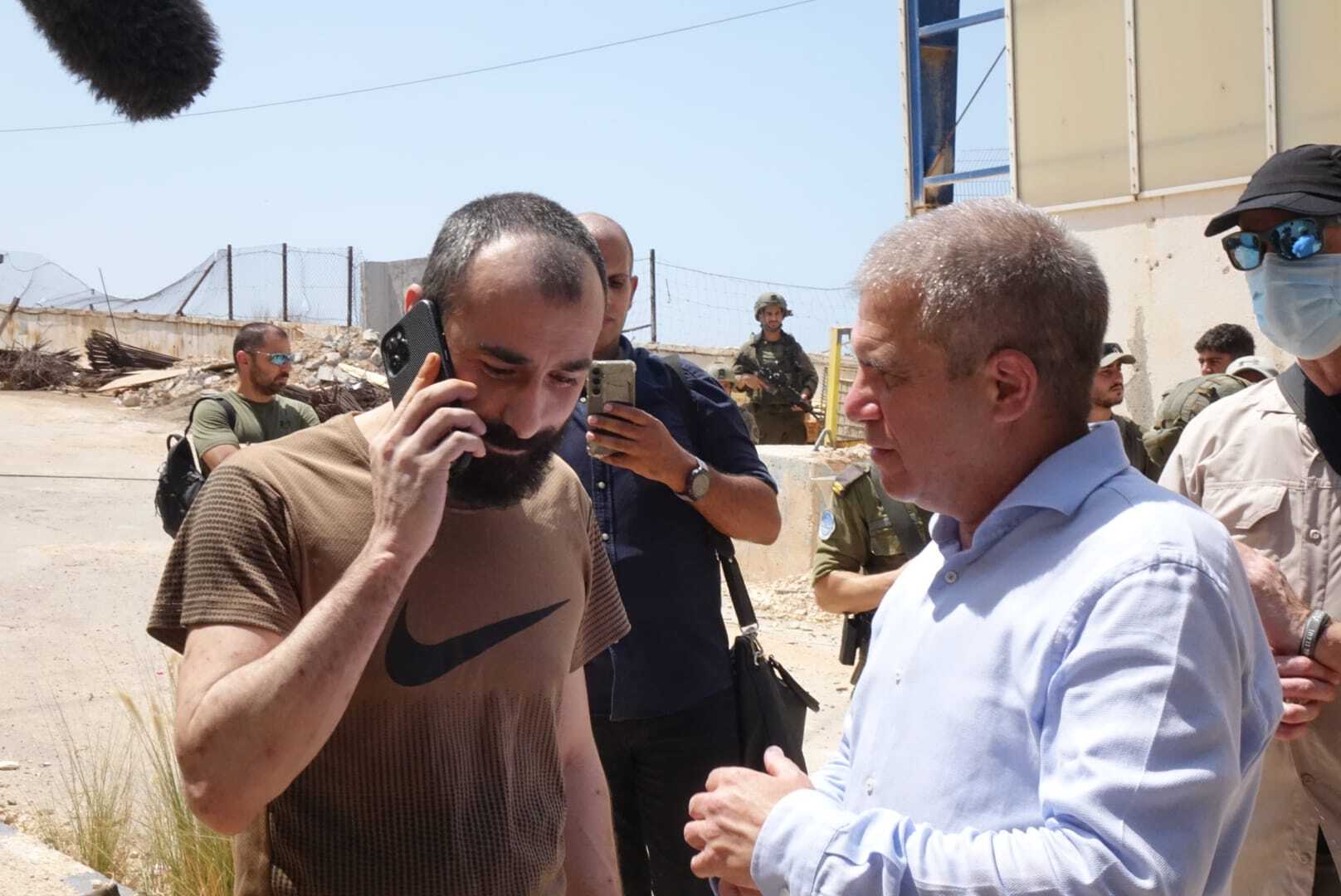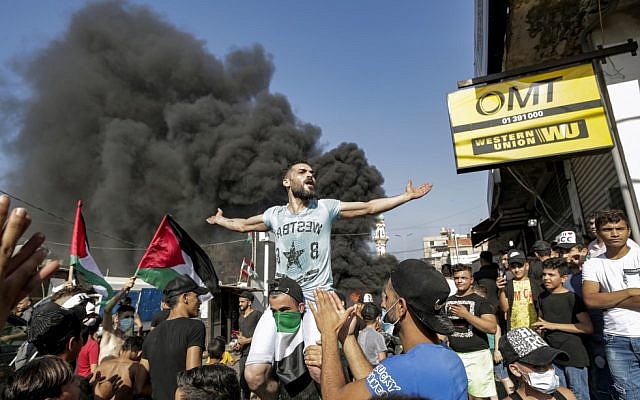


An Israeli civilian who was jailed in Lebanon for the past year without the knowledge of his family was returned to Israel Thursday.
The government coordinator for hostages and missing people, Gal Hirsch, announced Salah Abu Hussein’s return, saying it came after negotiations held with Lebanon in recent months and was carried out with the assistance of the Red Cross.
Abu Hussein was returned to Israel by Lebanese authorities through the Rosh Hanikra Crossing, Hirsch said in a statement sent by the Prime Minister’s Office.
“After an initial questioning and medical examination,” Abu Hussein was transferred by the IDF to a hospital where he was set to undergo additional examinations and treatment, “after which he will meet his family,” the statement said.
Hirsch said that “the circumstances of the incident are under investigation by security forces.”
Hebrew media reports said Abu Hussein’s family reported him as missing a year ago, not knowing where he was until his return on Thursday.
It was unclear how and when Abu Hussein entered Lebanon. In recent years, there have been several cases of Arab Israeli civilians crossing the border into Lebanon before being returned to Israel by Lebanese authorities.
Lebanese media reported that Abu Hussein had been arrested after entering the town of Naqoura and asking locals for water. He was reportedly jailed in Lebanon in July 2024, with covert negotiations held over the past few months. No Lebanese prisoner held in Israel was freed in exchange for him, the reports said.
A resident of the village of Rumana in the Galilee, Abu Hussein was reportedly mentally unstable.
“This whole time, we didn’t know he was being held in Lebanon,” an unidentified relative told the Ynet news site. “We don’t know how he ended up there, but we were very happy that he returned and is alive. The government worked to bring him back without sharing it with us. Only today did we find out the new details and it was a big surprise.”
In a statement, Prime Minister Benjamin Netanyahu welcomed the news, thanked those who worked for it to happen and added, “This is a positive step, and a sign of things to come.”
It was unclear whether the prime minister was referencing the possibility of quietly improving relations with leadership in Beirut, or a possible deal to release hostages held in Gaza. The premier has for at least three days avoided responding to Hamas’s announcement that it had accepted a US ceasefire proposal that reportedly was previously approved by Jerusalem.
Israel and Lebanon’s Hezbollah terror group fought for over a year after the Lebanese terror group started attacking Israeli towns and bases, unprovoked, on October 8, 2023, a day after its Gazan ally Hamas carried out its October 7 onslaught in southern Israel.
Israel then launched a devastating offensive against the Lebanese organization in September 2024, killing much of its top leadership and degrading its capabilities. Under a ceasefire agreement reached in November 2024, Beirut’s army has been deploying in south Lebanon and attempting to dismantle the Iran-backed terror group’s infrastructure there.
Lebanon’s cabinet this month tasked the army with developing a plan to disarm Hezbollah by the end of the year, which the organization has vowed to resist, saying it would fight to keep its weapons and threatening that there will be “no life in Lebanon” if attempts are made to relieve it of its arms.
Lebanese media reported Thursday that the country’s army was set to start confiscating weapons that night from two Palestinian camps, Al-Buss near Tyre and Burj al-Barajneh near Beirut.
These camps were established in 1948 when Palestinian refugees arrived in Lebanon, and over the years, armed Palestinian groups have effectively ruled them, with Lebanese authorities having no control inside and local residents not having Lebanese citizenship.
According to the reports, the move comes as part of Lebanon’s broader effort to ensure that all weapons are held exclusively by the state, with its main focus being the disarmament of Hezbollah.
The reports in Lebanon noted that the step follows cooperation between the Palestinian Authority and the Lebanese government. While the PA has no direct control over the refugee camps, it retains some influence with Palestinians there.
Also on Thursday, the IDF said a member of Hezbollah’s elite Radwan force was killed in an Israeli drone strike in southern Lebanon.
The military said the Radwan member was operating in the Deir Seryan area, and that his activities were a violation of the ceasefire between Israel and Hezbollah.
Since the November ceasefire, the IDF has conducted regular strikes on Hezbollah targets it said were in violation of the truce, and says it has killed over 230 Hezbollah operatives in such strikes. It has kept forces at five strategic points in side Lebanon, near the border, saying these are necessary to keep Israelis safe.


